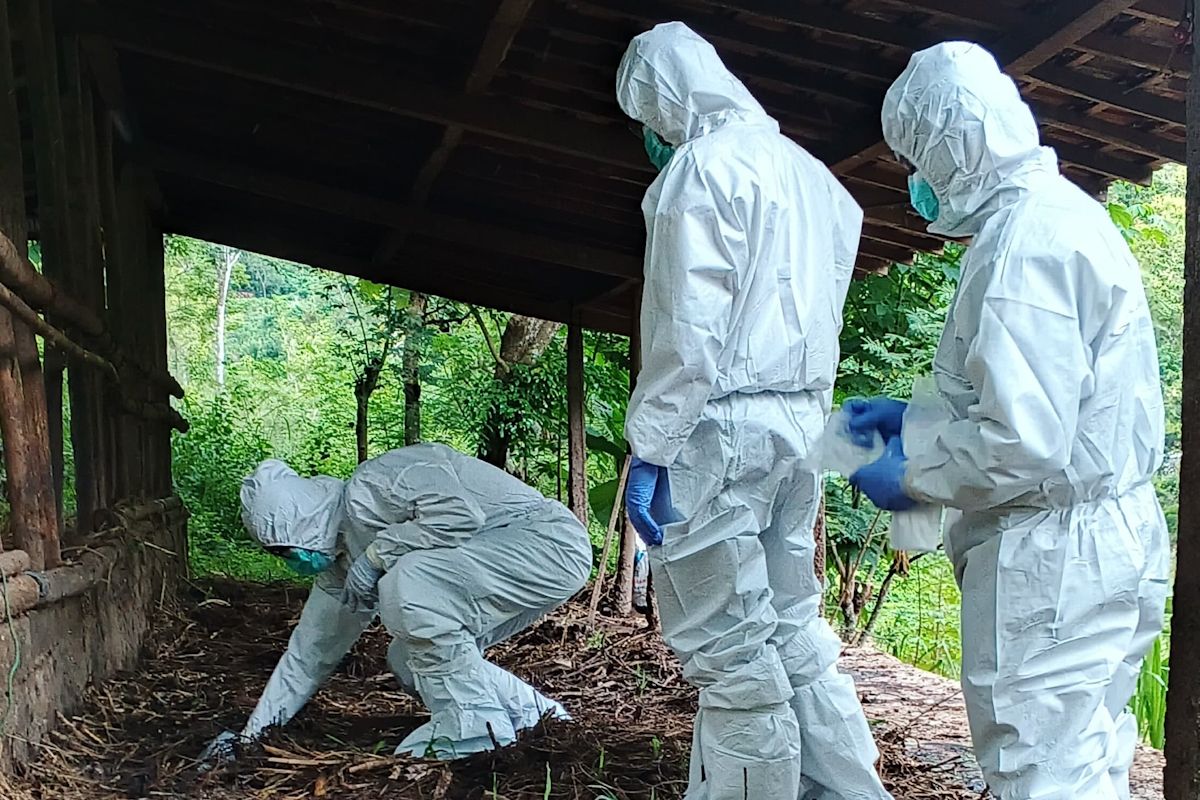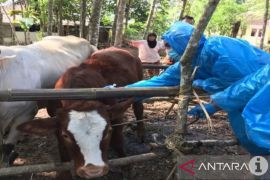"We have sent a team to conduct tracing, sampling, and provide guidance to livestock owners," said Agung Suganda, the ministry's Director General of Animal Husbandry and Animal Health, on Thursday.
He stated that the Wates Veterinary Center (BBVet), a technical unit of the Ministry of Agriculture, has been deployed to investigate the case.
BBVet Wates is also coordinating with the local Animal Husbandry and Animal Health Service, as well as the Health Service, to monitor and assess the health of livestock owners and those who have had contact with infected animals.
Head of BBVet Wates, Hendra Wibawa, reported that the team has thoroughly disinfected the affected cages to eliminate germs and curb the spread of the disease.
"The livestock must be kept isolated and should not be moved. Access to the area must be restricted, and biosecurity measures must be enforced to prevent exposure to other animals," he stated.
Wibawa confirmed that antibiotic treatment has been administered to infected livestock, followed by anthrax vaccinations after the antibiotic treatment period is completed.
"For areas outside the infection site, anthrax vaccinations should be administered to healthy livestock as soon as possible to prevent disease transmission," he added.
He noted that no cases of transmission have been reported among other livestock, and no clinical symptoms have been observed in humans.
"The Ministry of Agriculture will continue to monitor and manage the situation to prevent further spread and protect both animal and human health," he emphasized.
Anthrax is commonly found in livestock and wild animals, posing a risk of transmission to humans. Meat from anthrax-infected livestock should not be consumed, as it can spread the bacteria to humans.
Related news: Rain can speed up spread of anthrax spores: BRIN
Related news: Avoid using land infected with anthrax spores: agriculture service
Translator: Muhammad Harianto, Resinta Sulistiyandari
Editor: Anton Santoso
Copyright © ANTARA 2025












